detail profile herb gardner
Peran Yang Di Mainkan Herb Gardner
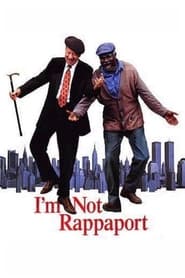 Old Nat Moyer is a talker...
Old Nat Moyer is a talker...I'm Not Rappaport 1996
Old Nat Moyer is a talker, a philosopher, and a troublemaker with a fanciful imagination. His companion is Midge Carter, who is half-blind, but still the super of an apartment house. When he is threatened with retirement, Nat battles on his behalf. Nat also takes on his daughter, a drug dealer, and a mugger in this appealing version of a really 'odd couple'.
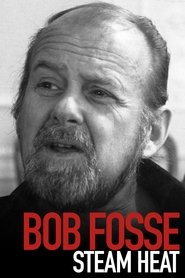 A documentary profile of directorchoreographer Bob...
A documentary profile of directorchoreographer Bob...Bob Fosse: Steam Heat 1990
A documentary profile of director/choreographer Bob Fosse. Includes clips from his films and television specials as well as interviews with Fosse, remembrances from his friends, and commentary by Gwen Verdon. A Dance in America presentation, broadcast as part of Great Performances.
 Two terrible lounge singers get booked...
Two terrible lounge singers get booked...Ishtar 1987
Two terrible lounge singers get booked to play a gig in a Moroccan hotel but somehow become pawns in an international power play between the CIA, the Emir of Ishtar, and the rebels trying to overthrow his regime.
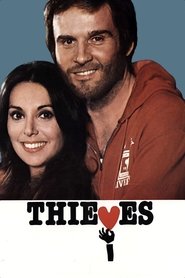 Martin and Sally Cramer grew up...
Martin and Sally Cramer grew up...Thieves 1977
Martin and Sally Cramer grew up on the hardscrabble Lower East Side, where Sally still teaches; meanwhile, Martin's the head of a fancy private school. Romantic dalliances with others convince them that they're meant to be together despite their differences, a decision that's cemented, oddly enough, by an over-the-top argument that draws the police.
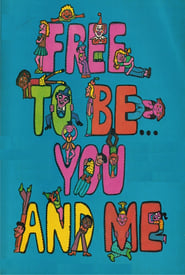 Free to BeYou and Me a...
Free to BeYou and Me a...Free to Be… You and Me 1974
Free to Be…You and Me, a project of the Ms. Foundation for Women, is a record album, and illustrated book first released in November 1972, featuring songs and stories from many current celebrities of the day (credited as "Marlo Thomas and Friends") such as Alan Alda, Rosey Grier, Cicely Tyson, Carol Channing, Michael Jackson, and Diana Ross, among others. An ABC Afterschool Special using poetry, songs, and sketches, followed two years later in March 1974. The basic concept is to encourage a post-60's gender neutrality, while saluting values such as individuality, tolerance, and happiness with one's identity. A major thematic message is that anyone, whether a boy or a girl, can achieve anything.
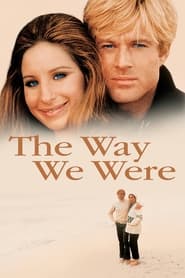 Opposites attract when during their college...
Opposites attract when during their college...The Way We Were 1973
Opposites attract when, during their college days, Katie Morosky, a politically active Jew, meets Hubbell Gardiner, a feckless WASP. Years later, in the wake of World War II, they meet once again and, despite their obvious differences, attempt to make their love for each other work.
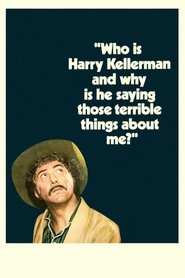 Hugely successful but impossibly neurotic songwriter...
Hugely successful but impossibly neurotic songwriter...Who Is Harry Kellerman and Why Is He Saying Those Terrible Things About Me? 1971
Hugely successful but impossibly neurotic songwriter Georgie Soloway is sliding into a mid-life crisis. He believes that all of his past romantic relationships have been destroyed not by his own failings but by the interference of the mysterious Harry Kellerman. Family, friends, and his psychiatrist cannot give him the help he seeks. When his father is diagnosed with a terminal illness, Georgie begins spending more and more time flying his personal aircraft, distancing himself physically, emotionally, and mentally from the real world.
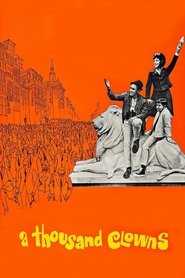 Twelveyearold Nick lives with his Uncle...
Twelveyearold Nick lives with his Uncle...A Thousand Clowns 1965
Twelve-year-old Nick lives with his Uncle Murray, a Mr.Micawber-like Dickensian character who keeps hoping something won't turn up. What turns up is a social worker, who falls in love with Murray and a bit in love with Nick. As the child welfare people try to force Murray to become a conventional man (as the price they demand for allowing him to keep Nick), the nephew, who until now has gloried in his Uncle's iconoclastic approach to life, tries to play mediator. But when he succeeds, he is alarmed by the uncle's willingness to cave in to society in order to save the relationship.

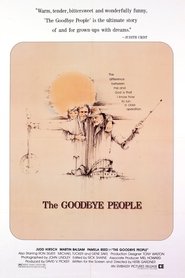 An elderly man is determined to...
An elderly man is determined to...